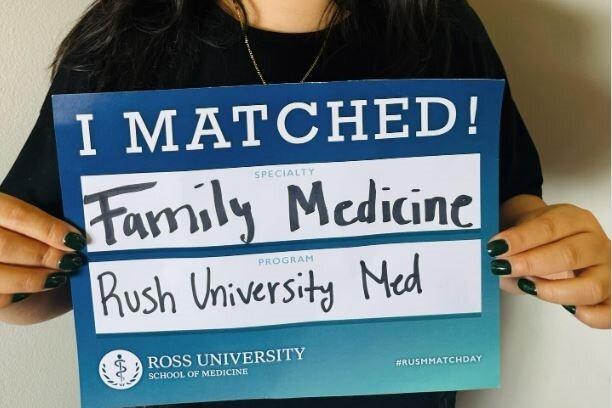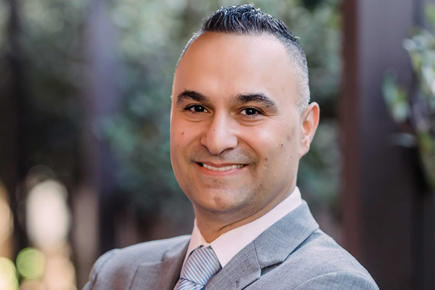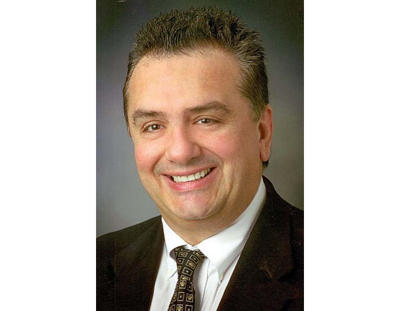For the better part of her childhood, Ramirez grew up in a Spanish-speaking community and traveled to and from the Dominican Republic to visit family and friends several times a year. It was on one of these visits that the spark to become a physician was lit when her uncle, who was studying medicine at the time, came home with a human heart in a jar of formaldehyde. Instead of being frightened, as many children her age would have been, Ramirez was intrigued.
“I remember being so fascinated that this was inside of our bodies, and that experience really sparked the initial flame,” she explained.
As she grew older and her English became more proficient, Ramirez became her family’s translator at doctor’s visits in the U.S., and often felt frustrated by how the healthcare system was engaging with her family.
“The more situations like that I was in, the more angry I became,” she said. “I vowed that one day I would be in that doctor’s seat and be an advocate for my patients and never have them feel the way we felt.”
To achieve her dream, Ramirez set out in uncharted waters that were at times filled with doubt and uncertainty, yet through it all, her determination never waivered.
“It was a tough journey because, being not only the first physician in my family but also the first college graduate, there was no path to follow and no one around to guide me; I had to figure it out along the way,” she said. “I was told by many people that I wouldn’t be a doctor, that I wouldn’t go to college, that I wouldn’t make it.”
Determined to prove her naysayers wrong, Ramirez majored in Biology as an undergraduate student at Montclair State University. While she was there, a professor noticed her proficiency for research and encouraged her to do more. With the help of a classmate, she found and applied to a minority internship research program at Johns Hopkins University, to which she was accepted. After graduating from Montclair, Ramirez returned to Johns Hopkins as a research assistant and began applying to U.S. medical schools. When she wasn’t accepted, she started to think about alternative options – and more importantly – what she most wanted to get out of medical school.
“For me, it’s always been about the journey. It’s always been about where am I going to grow and how is this experience going to make me a better person,” she said.
Soon after, Ramirez received an invitation to attend a Ross University School of Medicine (RUSM) Information Seminar in Baltimore, which she attended. It was there that she received the answer she was looking for.
“There was one alumnus who said that what they learned at RUSM was that the things they thought they needed were actually things that they wanted, and I don’t know why, but for me that resonated completely because it spoke to the fact that yes, you’re going to get the medical education, but there’s more. There’s a depth of knowledge that you’re going to get which is different from what I might have gotten elsewhere. There’s something about the journey that teaches you to be a better person, a better human. And after that, I only applied to Ross,” she explained.
During her time at RUSM, Ramirez came to learn exactly what that alumnus had been talking about – which, she noted, was that as her life in Dominica became simpler, she was able to focus on the things that really mattered.
“At RUSM, you have the things you need to serve your purpose, but no more than that,” she said. “And through this stripped-down version of myself and through my interactions with the locals and the people on campus, I got a sense of what’s truly important. At the heart of everything, what’s important are the connections you make and the essence of what makes us all unique and special.”
Now an Assistant Professor of Family and Community Medicine at Penn State Health Milton S. Hershey Medical Center who has received numerous recognitions and awards, Ramirez has built a local, regional, and national reputation in the areas of health equity for underserved populations, women’s health, and development of curricula focused on culturally responsive healthcare and empathy formation.
“My interests, passions, and previous work have focused on health disparities and underrepresented minorities both in the community and in medicine. Early in my career, I understood that narrowing the gap in health disparities required a multipronged approach and would need to firstly, improve access to care; secondly, provide community initiatives; and thirdly, be learner focused.”
“We know that soon, the existing minority population is going to be the majority and as educators we must ask ourselves if we are preparing our current medical learners to care for this population. As we prepare for this new landscape, we must keep in mind that improved patient trust improves health outcomes. For minority populations, the doctor-patient relationship, which is largely built on trust, is heavily dependent on the patient’s ability to relate and connect with their doctor. This happens most often if their doctor looks like them and can speak their language. The unfortunate truth is that less and less minority students are going into medicine partly because there aren’t enough programs that offer a glimpse of hope that they can do it. So this is important, and the more programs we can have that foster minority enrollment, the better.”
Ramirez is so passionate about the RUSM mission to give deserving students the chance to become physicians that she still finds time to provide words of encouragement and mentorship to those seeking to follow in her footsteps.
“I have a responsibility to give back and do what I can so that students who are coming up behind me won’t struggle as much as I did,” she said. “For me, becoming a physician was a privilege and I saw my path as earning my right to one day be in a person’s life in that way. Ross was where I learned how strong I was and how strong my passion for medicine was. But it’s also where I learned how important it is to strip yourself of all the things that are not at the heart of who you are as a human being. I’m incredibly proud that this Dominican-Cuban girl from Jersey City who spoke English later in life made it. I did what I set out to do.”



